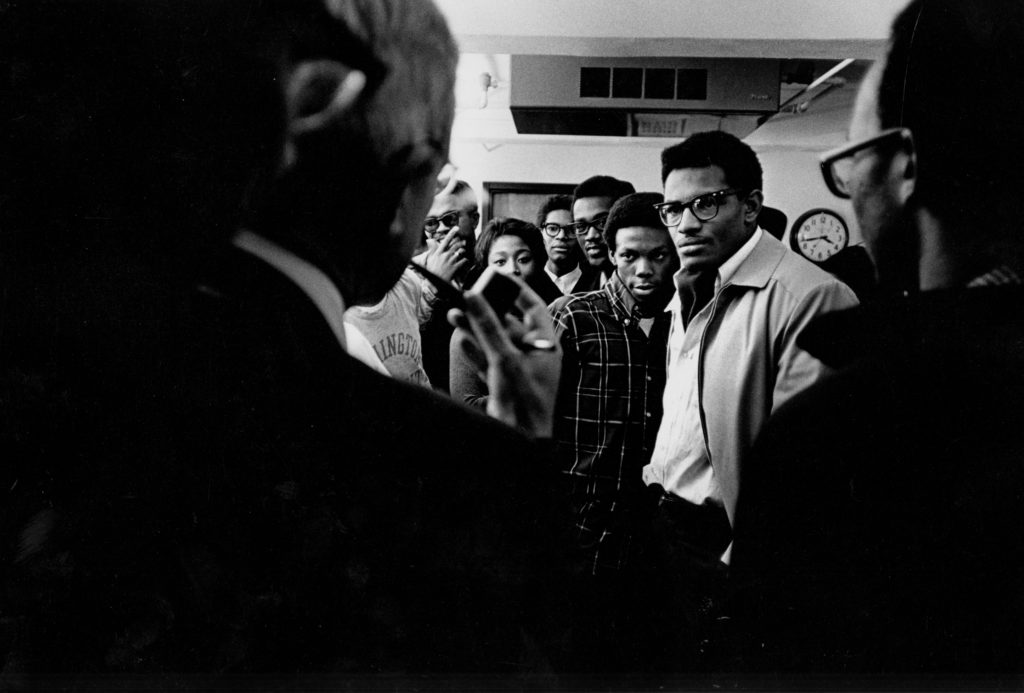
The election of Donald Trump has shocked many. But for Adia Harvey Wingfield, professor of sociology in Arts & Sciences, the candidate’s rhetoric was all too familiar and revealed the stubborn persistence of ugly racial and gender stereotypes.
 A long history: “From a sociological perspective, Donald Trump’s win over Hillary Clinton evokes many theories of racial and gender inequality,” said Wingfield, who also serves as affiliate faculty in women, gender and sexuality studies. “Since the start of his candidacy, Trump has made statements that evoked racial stereotypes which have a long history in the U.S. cultural imagination: that Mexican immigrants have a propensity for criminal activity, that black Americans are a largely impoverished, uneducated group. According to some sociological theories, these depictions of minority groups are deployed as a way of justifying and legitimizing the unequal treatment of people of color.”
A long history: “From a sociological perspective, Donald Trump’s win over Hillary Clinton evokes many theories of racial and gender inequality,” said Wingfield, who also serves as affiliate faculty in women, gender and sexuality studies. “Since the start of his candidacy, Trump has made statements that evoked racial stereotypes which have a long history in the U.S. cultural imagination: that Mexican immigrants have a propensity for criminal activity, that black Americans are a largely impoverished, uneducated group. According to some sociological theories, these depictions of minority groups are deployed as a way of justifying and legitimizing the unequal treatment of people of color.”
- Familiar tropes: “Trump’s reliance on this language and imagery should not be surprising; it is simply the latest in a long history of whites in elite and non-elite roles using such rhetoric to explain persistent racial inequalities. Similarly, research shows unequivocally that women, when seeking positions of power, face numerous obstacles, including blatant and subtle discrimination, difficulty finding mentors, and stereotypes about their emotional and professional capabilities. So while Trump’s victory may have surprised many, it nevertheless relied on familiar racial and gendered tropes that have been effective in the past.”
- Collective action: “That said, research on social movements suggests that collective behavior can be an effective way for disadvantaged groups to change hierarchical and unequal social structures. Sociologist Aldon Morris has highlighted the role grassroots organizing played in making the Civil Rights movement an effective force in ending Jim Crow-era segregation. Other sociologists offer similar accounts of how women’s movements in the 1970s produced significant advances in gender equality. Thus, while Trump’s campaign rhetoric (and potential policies) could potentially exacerbate gender and racial equality, research suggests that collective action has historically been a way for groups to challenge social structures and institutions that work to their disadvantage. We may see more of this type of action in coming years.”
Editor’s note: Members of the media interested in interviewing Wingfield can reach her by email at ahwingfield@wustl.edu or by phone at 314-935-5239.
Read more from our experts on Election 2016.